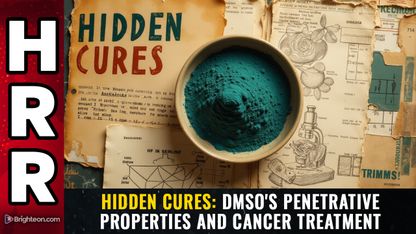
Reduce inflammation and you lower cancer risk
There is a clearly established link between inflammation levels and the risk of developing cancer, as well as the chances of recovery and survival. Studies have found that patients with the lowest inflammation levels are more likely to survive at least two years after a cancer diagnosis. Inflammation is also directly linked to the development of a host of other chronic diseases.
Natural News previously reported:
One researcher, the Total Health Institute’s Keith Nemec, is currently exploring the underlying causes of disease in nutritional and metabolic medicine. He said: “Whether you have cancer, heart disease, diabetes, digestive disorders, autoimmune disease, or Alzheimer’s, it all starts with inflammation at the cellular level, which leads to either early cell death translating into specific organ or gland disease, or into cancer stem cell stimulation, which fuels cancer cell growth and metastasis.”
With this link in mind, therefore, it is logical that reducing inflammation is the best way to both prevent and treat chronic diseases like cancer.
How quercetin and vitamin C reduce inflammation
Quercetin scavenges free radicals, which are the by-products of chemicals and which damage DNA and cell membranes. In nature, it is quercetin’s job to protect plants against environmental toxins and infection. It is a powerful antioxidant in its own right and also boosts the function of other antioxidants in the body, including its primary antioxidant, glutathione. Antioxidants are the body’s main way to reduce the inflammatory response which is linked to chronic illness. (Related: Quercetin offers numerous health benefits.)
Vitamin C is one of the best weapons we have against disease-causing inflammation. A study published in the journal Drug Design, Development and Therapy explained:
Vitamin C is a water-soluble reducing agent and antioxidant due to its characteristic of donating an electron, and all of its metabolic roles are probably due to this function. It acts as an electron donor for eight human enzymes and neutralizes free radicals to protect from damage.
Quercetin and vitamin C: the dynamic inflammation-busting duo
Aware of the inflammation reducing properties of quercetin and vitamin C, the research team involved in the study mentioned at the top of this article were keen to determine how effective these two antioxidants would be when used together to reduce inflammation levels.
Natural Health Research explained the study methodology:
In the study, 60 healthy men between the ages of 19 and 23 were given either 500 mg of quercetin, 250 mg of vitamin C, both quercetin and vitamin C, or placebo each day for 8 weeks. Throughout the study, the subjects provided information on diet, physical activity, and any side effects. The subjects also agreed to avoid the use of vitamin/mineral supplements, nutritional supplements, herbs, and drugs known to affect immune function for 3 weeks before and during the 8 weeks of study.
The results were amazing. The group consuming the quercetin/vitamin C combo experienced the best results, with an average decrease of 49 percent in levels of an inflammatory marker known as C-reactive protein, along with a staggering 62 percent decrease in another inflammatory protein, interleukin-6.
In stark contrast, the placebo group which was not taking either quercetin or vitamin C, experienced a 47 percent increase in interlukin-6 levels.
Clearly, quercetin and vitamin C are powerful natural medicines that are serious contenders in the fight against inflammation and chronic disease. It is well worth increasing consumption of foods that are naturally high in these antioxidants or to include good, clean sources as part of your daily supplementation regimen.
Discover more of nature's secrets at Nutrients.news.
Sources include:
Please contact us for more information.























